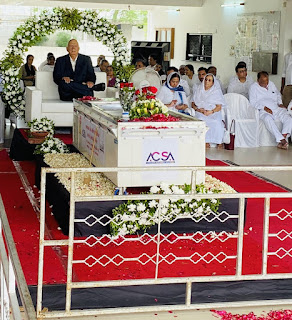Introduction:
The journey of Indian Muslims is a tapestry woven with historical richness and contemporary challenges. This research article seeks to elucidate the multifaceted dimensions of political, economic, social, and educational conditions among Indian Muslims. By examining these factors in conjunction with human rights considerations and the role of NGOs, this article endeavors to propose a comprehensive roadmap for progress, while also highlighting the pivotal role of empowering Muslim women.
Political Landscape: Representation and Participation: Statistical data reveals a concerning underrepresentation of Muslims in political spheres. Despite constituting around 14% of India's population, Muslim representation in Parliament and legislative bodies is disproportionately low.
This underrepresentation impacts policy formulation and highlights the necessity for inclusive political engagement. Encouraging Muslim political participation through awareness campaigns, and promoting candidates who reflect the community's diversity, can enhance their political influence.
Economic Realities: Breaking the Chains of Disparity:
Economic disparities within the Muslim community are stark. Data from the Sachar Committee Report indicates that Muslims often lag behind in access to jobs, education, and financial resources. Addressing these disparities requires targeted skill development programs, vocational training, and promoting entrepreneurship within the community. Leveraging government schemes and collaborating with NGOs can facilitate economic upliftment.
Social Integration: Striving for Harmony:
Social cohesion remains an essential aspect of Indian society. However, instances of discrimination and marginalization persist, challenging the unity of the nation. By fostering interfaith dialogues, cultural exchanges, and promoting understanding, we can bridge gaps and create an inclusive society that values diversity and pluralism.
Educational Endeavors: Enlightening Minds:
Educational disparities among Indian Muslims continue to be a concern. While progress has been made, there is a need to further enhance educational opportunities for the community. Scholarships, affirmative action, and support for education at grassroots levels can empower the younger generation, breaking the cycle of limited access to quality education.
Human Rights and NGOs: Advocates for Change:
Human rights are the bedrock of any society. Several NGOs play a crucial role in advocating for the rights of Indian Muslims. NGOs like the Human Rights Law Network and Amnesty International have been instrumental in highlighting injustices and advocating for change. Collaborative efforts between NGOs, government bodies, and civil society are essential to address human rights violations effectively.
Empowering Muslim Women: A Path Forward:
Empowering Muslim women is pivotal for holistic progress. Despite societal challenges, Muslim women are making strides in education and other spheres. Encouraging women's participation in decision-making processes, vocational training, and providing safe spaces for skill development can lead to their economic empowerment and societal advancement.
Conclusion: Charting a Path to Progress:
The roadmap for Indian Muslims encompasses a multi-dimensional approach that addresses political underrepresentation, economic disparities, social integration, educational uplift, human rights advocacy, and women's empowerment. By combining government initiatives, NGO efforts, and community engagement, we can transform the trajectory of the Muslim community in India. This transformative journey is not just a duty towards the Muslim population but a collective endeavour towards a more inclusive, harmonious, and prosperous India.
~ Dr Intaj Malek





